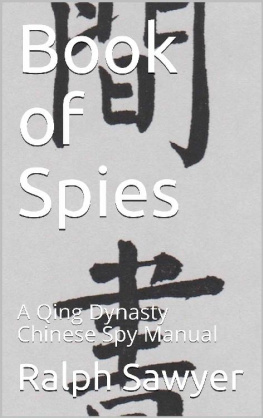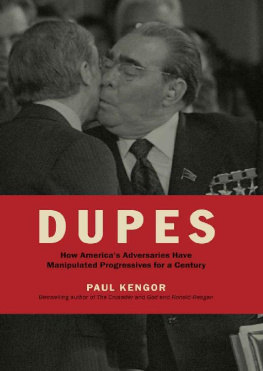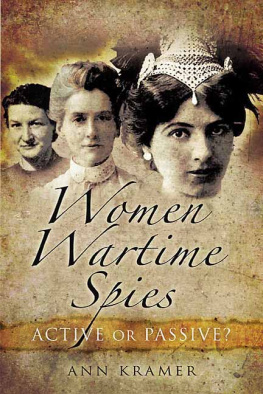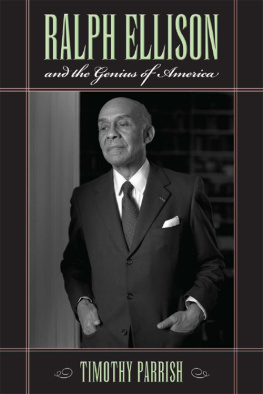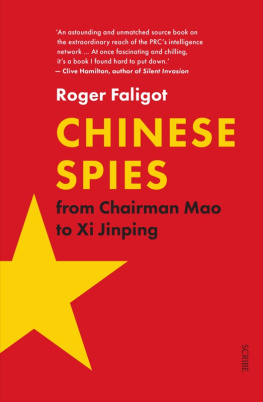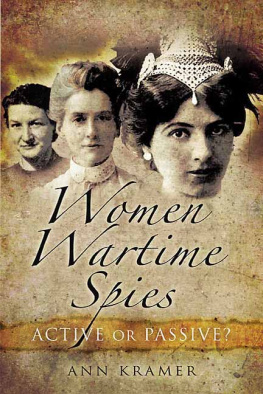This edition is published by ESCHENBURG PRESS www.pp-publishing.com
To join our mailing list for new titles or for issues with our books eschenburgpress@gmail.com
Or on Facebook
Text originally published in 1952 under the same title.
Eschenburg Press 2017, all rights reserved. No part of this publication may be reproduced, stored in a retrieval system or transmitted by any means, electrical, mechanical or otherwise without the written permission of the copyright holder.
Publishers Note
Although in most cases we have retained the Authors original spelling and grammar to authentically reproduce the work of the Author and the original intent of such material, some additional notes and clarifications have been added for the modern readers benefit.
We have also made every effort to include all maps and illustrations of the original edition the limitations of formatting do not allow of including larger maps, we will upload as many of these maps as possible.
SPIES, DUPES, AND DIPLOMATS
by
RALPH DE TOLEDANO
First Edition
ILoveand DeathIs a Falling Star
SITTING in death row, a man may think of the gallows. But he does not really believe they exist. He may accept the hour of his death, but he does not really believe in death itself. Extinction and dissolution center in the pit of the stomach. The condemned man lives in suspension; he merely thinks. From each according to his nature, and to each according to his soul, the thoughts come and are separated out. Pacing his cell or staring at the cold sky, he asks: What was the wrong turning, where was the false step? These are questions less academic to him than: Will I die?
In the grim row of cells in Sugamo Prison, where the Japanese Empire sequestered men about to die, Richard Sorge and Ozaki Hozumi sought to make a pattern of their lives as they waited for the knock on the door which would admit their last minutes. The year was 1944, the month November. The country which one had spied on and the other betrayed still fought against Britain and the United States. But it had already begun to move inexorably toward the defeat which exploded over Hiroshima and was formalized by General MacArthur on the deck of an American battleship.
Neither Sorge nor Ozaki knew this. Within Sugamos walls, their punctilious guards bandied only words of victory, the triumph of a brutal and calculated imperialism. To Sorge, Japanese successes meant little that could touch his emotions. The wars of capitalist powers meant only a struggle for temporary hegemony before the great and concluding triumph of the Soviet power over the human race. A hard mind that categorized all facts and ordered all existence within the Leninist dialectics of his creed, Sorge had set for himself the task of re-examining the details of his life, his work, and his achievement. These obiter scripta to a life he had put down on paper, at the urging of his Japanese captors.
They were in no sense a confession. For though the document, in its thirty-two thousand words, meticulously recorded his espionage activities in China and Japan, it was more in the nature of an epistle to the Nipponese heathen, an explanation of the magnitude and patience of Soviet method. It betrayed no secrets the Japanese secret police did not know already. Where it dealt with Sorge, the man and the Communist, it was almost openly addressed to his masters in the Kremlin. See, the Sorge story seemed to say, though I have committed the grievous sin of letting myself be caught, I am still a sound Leninist. Almost the last words of the document were a confession of a youthful ideological fault in evaluating Rosa Luxemburg, the German revolutionary.
Sorge was proud of his Communist record. He had moved into the Marxist orbit as a young soldier, consciously, carefully, in all premeditation. He had served Stalin well. He had fulfilled one of the most fabulously difficult missions in the history of espionage. Working as a confidant of Gestapo agents, this Soviet spy had wormed his way into the highest councils of the German Embassy in Tokyo. He had whipped the cream of this jest to solid consistency by helping his Nazi friends and Japanese allies draft the Anti-Comintern pact. Through his accomplice Ozaki, he had discovered Japans most guarded military secret, the time and the place of the next onslaughtPearl Harbor. And he had transmitted this information to Moscow months before Japanese planes virtually obliterated the United States Pacific Fleet. This one piece of intelligence had shifted the course of history; Siberian troops had been moved to the German front.
And out of the intuition which often cohabits with rigorous logic, Sorge knew that his work in the Far East would continue to an overwhelming conclusion for Communist arms. His agentsthe Agnes Smedleys and Gnther Steinswere busy creating the intellectual climate which would permit a frustration of American self-interest and lead to a disastrous Chinese Communist victory in the post-war years. The road from Sorges cell to the State Department White Paper was long and tortuous, but his logical brain could trace it out.
Perhaps some regrets flickered through Sorges mindno man wants to diebut these were probably sensual. Throughout his adult life, he had drunk boisterously and fornicated with determination. A random check by the Japanese secret police, after Sorges arrest, had netted them the names of thirty women who had moved in and out of his bed during the Tokyo years. Among them were the hetaerae of the Communist netherworld, the wives and mistresses of his espionage colleagues, and even the wives of German Embassy colleaguesthe very men whose suspicion could have destroyed him at any moment. For liquorsince it might lead to political indiscretionand sex were the calculated risks of his existence, the measure of his blood and arrogance. In bed or at the bottle, the steeled Bolshevik could disappear and the undisciplined Teuton take over.
Ozaki Hozumi was another man altogether. He had come to Communism out of an overblown guilt sense, an easy sentimentality, and a large measure of thoughtless idealism. Espionage had followed painlessly when Agnes Smedley had convinced him that he would be doing something of real importance. He believed that his meeting with her, and his decision to follow the narrow road, had been predestined. He had been captured by slogans and snared by a hope of unearned green pastures for all men. When the means enslaved the ends, he was raddled by conscience. He knew his moral crime was greater than Sorges, for Ozaki had betrayed his own country. He had a wife whom he loved, a child.
Ozaki, too, wrote a memoir, but it was no dialectical account of his deeds. Instead, he turned out long, emotional letters to his wife and an apologia for the Japanese court in which he traced the course of his spiritual downfall and sadly seconded his coming extermination. The letters, written with all the petaled detail of a Japanese print, were later published, and their title reflected the ambivalence of the Japanese character: Love Is Like a Falling Star . But the apologia, the thoughts of a man who took a wrong turn and knew that he would live just long enough to regret it, lies buried in Tokyo court records.




